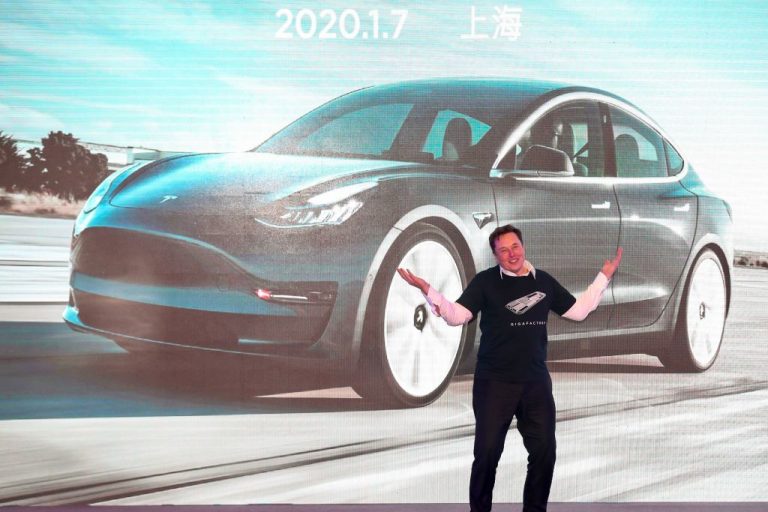American electric car manufacturer Tesla may face trouble from the Chinese authorities after a disgruntled Tesla owner climbed on top of a display vehicle and sounded off that she was almost killed because of brake failure at the Shanghai Auto Show on April 19.
According to an article by Irish Times, a large number of demonstrators protested the event wearing T-shirts alleging Teslas had “malfunctioning brakes.” One protester, identified as a Tesla customer, had apparently demanded a refund after a crash in February, which she claimed was caused by brake failure. Negotiations were stymied after the owner was not willing to allow a third-party investigation into the cause of the accident.
Tesla responded by saying that it would take responsibility for any issues with its vehicles, but added “our attitude is that we do not compromise with unreasonable complaints.”
China’s state-run media and China’s Central Commission for Political and Legal Affairs, the Communist Party’s top legal authority, accused the American company of not being able to take criticism and criticized it for “shirking responsibility.” The missive was posted on Tencent’s social media platform, WeChat.
According to reports, the Party organ’s criticism stated that Tesla’s popularity came from consumer faith in the company, “but arrogance, let alone a lack of respect for China’s market and consumers, cannot be the response to that faith.”
Success
You are now signed up for our newsletter
Success
Check your email to complete sign up
In a development that does not bode well for Tesla, Party state-run mouthpiece Xinhua asked in a separate article, “Who gives Tesla the confidence to ‘not compromise’?”
After coming under fire by state authorities, Tesla’s corporate HQ in Palo Alto backtracked, saying it had set up a team to manage the protester’s case saying it “would work with any government investigation.”
The protester was detained by Shanghai police for five days for “disrupting the peace,” according to AFP.
According to Detroit News, Chinese Tesla owners were banned in March from parking their vehicles inside gated communities in Chinese military complexes because of allegations cameras built into the vehicles may pose a threat to security.
CEO Elon Musk downplayed the concerns, saying the company would never use the car’s technology for spying, adding that Tesla cameras, which are built into its EVs, aren’t activated outside of North America.
In order to whip up organized sentiment against foreign companies, the CCP has lashed out at apparel brands such as Nike and H&M after they expressed concern about the alleged use of forced Uyghur Muslim labor in cotton harvesting in the genocide prone Xinjiang Autonomous Zone.
Meanwhile, The European Union (EU), the United States, Canada, and the United Kingdom have imposed sanctions on several top Chinese officials over the genocide. All 27 EU member countries were in agreement with the sanctions.













